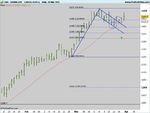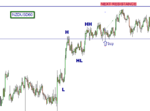http://www.trade2win.com/boards/tec...ur-most-profitable-pattern-7.html#post2104826
http://www.trade2win.com/boards/tec...ur-most-profitable-pattern-7.html#post2104846
TBH I sort of agree with both arguments in part.
Tar is saying that a solid, more guaranteed edge at an
institutional level is by definition something that is more concrete.
NBBO front running on the NYSE, co-location latency etc.
They are hard and fast, quantifiable advantages.
They will only fail outright due to regulation, although competition
still plays a part even here - costs and liquidity to name but two.
I also agree with bbmac that a sound well thought out and tested plan
can also give an advantage over those without such a plan.
As mentioned, aside from the risk of failure due to regulation and costs,
you also face more of a risk of an approach failing at some point.
That is the only additional difference for me.
So in that sense, with the kind of advantages that institutional players
enjoy, they would be insane to resort to a less robust method as employed
by a retail trader.
That does not mean a retail trader can't turn a profit with a plan,
its just harder as a retailer faces greater obstacles:
1 No fixed salary.
2 Greater costs (paying spread, increased comms etc.).
3 No technological advantage.
4 No information advantage.
You also have to remember a retailer does have the following advantages:
1 Less obstructive regulation.
2 No OPM pressure.
3 No shareholders to please.
4 Greater flexibility - in sizing (entry / exit liquidity), instrument choice and duration.
Its far from easy at any level, but its certainly possible nevertheless.
Its swings and roundabout whatever you do.






